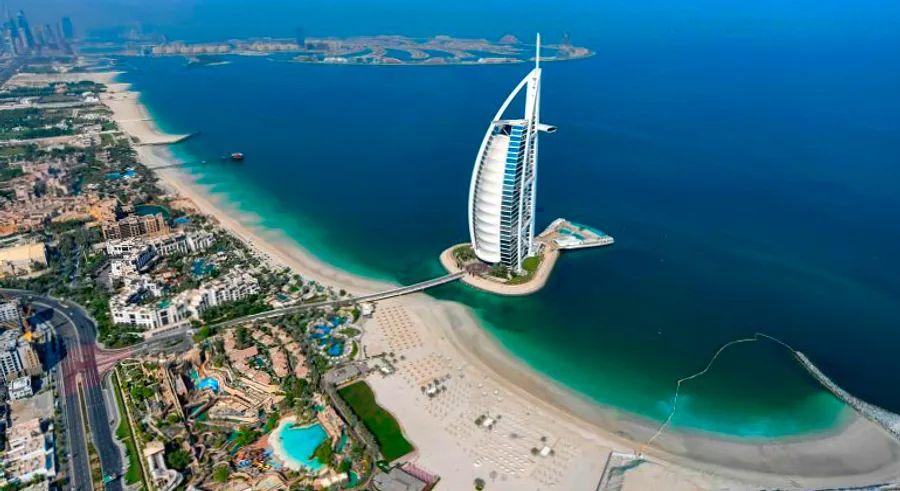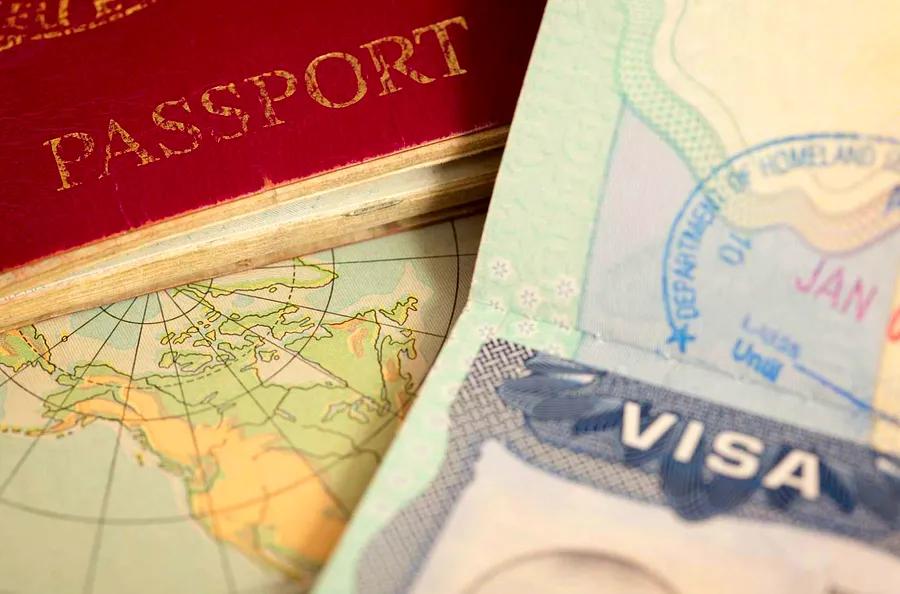Experience endless sunshine, poolside days, and no taxes: A guide to relocating to Dubai and working remotely for a year

While global business and travel hubs remain mostly closed, Dubai is simplifying entry requirements for international visitors like never before.
Dubai and the UAE have long been loosening their once-strict visa and residency rules, but recent changes have accelerated in response to the global pandemic.
Just last month, the UAE launched a nationwide remote work visa program (following Dubai's similar initiative in October) to appeal to a growing number of digital nomads, as temporary work-from-home arrangements become more permanent.
This visa offers remote workers the chance to benefit from the UAE's low taxes – with no income tax on residents – along with its year-round sunshine and luxurious lifestyle.
This move comes at a time when the UAE is experiencing a significant departure of expatriates, with foreign workers making up roughly 90% of its 10 million-strong population. However, Dubai is aligning with a rising global trend, joining other destinations like Antigua and Barbuda, Barbados, Bermuda, Estonia, Georgia, and Mauritius, which have introduced their own remote work visa programs.
In addition to the UAE's new remote work visa program, Sheikh Mohammed bin Rashid Al Maktoum, Dubai’s ruler, unveiled a multi-entry tourist visa open to all nationalities. This five-year visa allows visitors to enter and stay in the country for 90 days per trip, with the option to extend their stay for another 90 days.
A popular long-term destination for expatriates

This is the latest in a series of initiatives that Dubai has rolled out to strengthen its position as a top long-term destination for expatriates.
In the past, moving to Dubai required a job offer from a UAE-based employer, who would sponsor a two-year renewable residency visa and medical coverage. Permanent residency or retirement options were not available for expatriates.
However, the groundwork for permanent residency was laid in 2018 with the introduction of a five-year retirement visa for the first time.
The introduction of “golden visas” in 2019 marked a major step forward, allowing wealthy investors and business leaders to apply for 10-year or 5-year visas. This was later expanded in November 2020 to include professionals such as doctors and engineers.
In January of this year, the UAE made one of its most significant moves by opening the door to Emirati citizenship for expatriates.
Issam Kazim, CEO of Dubai’s Department of Tourism and Commerce Marketing (DCTM), shared with Dinogo in late March that since the launch of the remote work visa in October, approximately 1,700 applications had been submitted. He reported that the majority of these applications have been successfully processed and approved.
In January, Kazim revealed to Dinogo that an additional 16,000 foreigners – including many expatriate workers – chose to remain in the UAE after Dubai extended all tourist visas for one month in December due to the global lockdowns. He anticipated that many of these visitors would transition into full-time remote workers in the near future.
Kazim explained, “Dubai’s handling of the pandemic has only enhanced the city’s appeal, reinforcing the perception of Dubai as an attractive destination, and this is reflected in the growing number of people choosing it as either a permanent or semi-permanent home base.”
‘One of my favorite places’

The UAE is currently spearheading one of the fastest vaccination campaigns globally, with the government announcing that over half of its eligible population has already received their vaccine.
Dinogo spoke to several digital nomads who have applied for the remote work visa, highlighting Dubai's appealing lifestyle, favorable climate, and comparatively affordable living costs when compared to other expat hubs like Singapore or Hong Kong as key reasons for relocating.
Peter Walsh, co-founder of an education company in Canada, explained that he applied for the visa due to his fondness for Dubai, having lived in Saudi Arabia as a teenager, and referring to the city as “one of my favorite places.”
He initially planned to work remotely from the UAE for a year, with the possibility of extending his stay beyond that time frame.
“Originally, I planned to take the family on an extended vacation. As a bonus, I thought we could also get vaccinated while we’re there,” Walsh explains.
“It’s been a difficult year with Covid, so the main motivation for me was simply to get a break,” he adds.
Walsh submitted his visa application on February 16 and received an entry permit by March 2. He now has 60 days to enter Dubai. However, with Canada imposing a 14-day quarantine for those returning from abroad and the high costs associated with sponsoring family members in the UAE, he hasn’t been able to make the trip yet.
The Tax Dilemma
For entrepreneur Deeya Khemlani, trading London’s 4 p.m. winter sunsets for Dubai’s year-round sunshine is enough to convince her to take advantage of the visa program.
Khemlani, a co-founder of the fashion brand Izaak Azanei, has been visiting Dubai regularly for business and is now excited about the possibility of dividing her time more permanently between the city and her other locations.
“Dubai offers the best of everything, and its geographical location is perfect for me to travel to the countries I need to be in for work,” Khemlani explains.
Before the UK travel corridor shut down, Khemlani had been frequently flying between London and Dubai, so she had not yet completed her application. However, she plans to do so soon.
“Honestly, during the winter months, Dubai is a much-needed getaway,” she shares.
While the remote work visa program is marketed as a way to earn a tax-free income, the reality is that most applicants will still likely face taxation in their home country.
David Daly, a partner at the UAE-based Gulf Tax Accounting Group, explains that individuals from other countries who wish to earn a tax-free salary must first declare themselves as non-residents of their home country—a step that’s not feasible while still holding a full-time job there.

The issue of double taxation depends on the tax treaties in place between countries. The UAE has reciprocal tax agreements with nearly 120 countries, ensuring that individuals and businesses are only taxed once on their income.
Conscious Separation
There are a few important considerations to keep in mind.
Murtaza Khan, a partner at the immigration firm Fragomen, notes that there seems to be a “separation of visa sponsorship from employment.”
“To attract and retain top-tier talent, the country’s immigration policy must offer the right options,” he states.
Looking ahead, he anticipates further policies that will foster a “more balanced employment relationship between foreign workers and employers, as opposed to the traditional sponsorship-based model.”
The new remote work visas, Khan believes, will enhance Dubai’s reputation as a tourist destination, positioning it as a leading hub for virtual workers as well.

1

2

3

4

5
Evaluation :
5/5